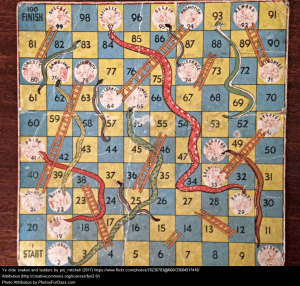
Lately, there has been a lot of discussion around gamifying the classroom, from classroom management apps like Classroom Dojo, to gamifying curriculum milestones. But what about good ol’ board games? You know, the ones that you play with other people, that come with a box with nifty cards or playing pieces? Do board games have a place in education? With their requirements for critical thinking, problem-solving, analysis, reasoning, communication and collaboration skills – not to mention being able to win and lose with grace – board games bring to life what is often hard to teach.
Modern vs Traditional Board Games
It is hard to ignore the comeback of board games over the past decade or so. There are many examples: board game nights, themed cafés and bars. The art of the game is alive and well, and taking place off screens for the most part, and in connection with real live people. New, modern board games are often a far cry from the luck-based games we all know, like Monopoly, Chutes and Ladders, or Sorry. Also, they are often far more accessible than a skill-based game like chess.
Modern board games are where fun and intellectual development meet. When players are immersed in an authentic game, they surrender themselves to the modified rules of its world. Activities that would normally be met with disdain in the context of schoolwork are happily completed within the game. This is because an authentic game provides structured competition, recreation and intellectual challenge all in one package.
Modern Board Games in the Classroom
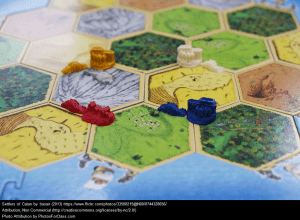 If you bring to the table an authentic game, which also happens to have curricular connections, then you have something powerful. Students can see through educational games as another worksheet in disguise and they can get put off. With authentic games, the students are eager to succeed at the game and to do so, they quite naturally utilize many cognitive skills, such as critical thinking, pattern recognition, logical reasoning, etc.
If you bring to the table an authentic game, which also happens to have curricular connections, then you have something powerful. Students can see through educational games as another worksheet in disguise and they can get put off. With authentic games, the students are eager to succeed at the game and to do so, they quite naturally utilize many cognitive skills, such as critical thinking, pattern recognition, logical reasoning, etc.
It is the same power that drives “real-world” connections in the classroom. As educators, we try to make real-world connections to the content we are teaching so that the lesson has more meaning and context for the students. Games create that context through well-developed themes and so, meaning materializes as the students strive to succeed in this brave new world with its unique set of rules. This is just one of the important connections board games have to the concept of Deep Learning. The following is an example of this.
In the game Diamant, players pretend to be adventurers who explore a cave that is filled with valuable treasure…and traps. Players make choices simultaneously, with players deciding if they will continue to push on further into the cave with the aim of eventually leaving with more treasure than their opponents. Higher risk and higher reward.
Once players have made their choice to continue into the cave or leave with the treasures they have already found, a new cave card is revealed, either displaying an amount of treasure that must be shared between the players still in the cave, or a trap which can potentially end the round, forcing any players in the cave to lose all the treasures they have found that round. With the simple mechanism of “push your luck”, the game provides an opportunity to practice division and probability while encouraging imagination, cooperation, and fun.
Social Development
Board games develop students’ social skills by enhancing the affective need for friendship and socialization as well as collaboration among peers. They teach students how to resolve conflict in a safe environment since the rules of the game will dictate the appropriate course of action. Playing games helps students communicate and collaborate (play nice, win nice, lose nice). Students can learn how to accept loss as well as victory. For students who have difficulty in social situations, games can provide a less stressful way to interact socially with their peers and can help those peers develop empathy.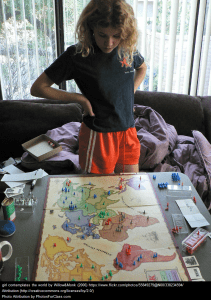
In terms of Deep Learning, a sense of belonging has been shown to play a pivotal role in learning. Playing a board game with other students creates an almost ideal social situation, ripe with opportunity to connect and help one another even though the game objective may be competitive, since understanding and running the game properly requires teamwork. Face-to-face interaction provides meaningful connections with others, reducing some of the emotional strain some children may be feeling, thereby encouraging a safe environment.
We have successfully incorporated regular board game play in the EMSB Strengthening Educational and Emotional Development (SEEDS) classroom. Students in this class have a variety of social, emotional, and behavioural difficulties. The changes we have observed in these students have been remarkable. The amount of teachable situations that arise when playing a board game provide ample opportunity to work on specific skills such as self-regulation, cooperation, communication, and other unwanted behaviours.
The amount of teachable situations that arise when playing a board game provide ample opportunity to work on specific skills such as self-regulation, cooperation, communication, and other unwanted behaviours.
Again, situations that would normally result in overtly aggressive reactions (skipping turns, moving another player piece, taking a game component someone else wanted, losing, etc.) are resolved with less and less need for intervention. The students have been able to express themselves rationally, work through upsetting situations calmly, and participate fully with one another. The students also had the opportunity to teach the games they have learned to the rest of the school and have invited the school community to participate in a family board game night that they will be hosting.
In Conclusion
With a variety of game mechanics such as Roll and Move, Worker Placement, Role Selection, Simultaneous Action, Open Movement, Set Collection, Cooperative Play etc., modern games force players to interpret, inquire, explore and act based on information from many sources. I believe that we can bridge the inherent learning potential of game play with the regular instructional program.
This is a guest post by Matt Pinchuk. Matt Pinchuk who is a West Island entrepreneur who has launched the website allaboardgameskids.com, which seeks to give students the opportunity to learn through play, intellectually and socially, using modern board games.
You can contact him at: mattpinchuk[at]gmail[dot]com

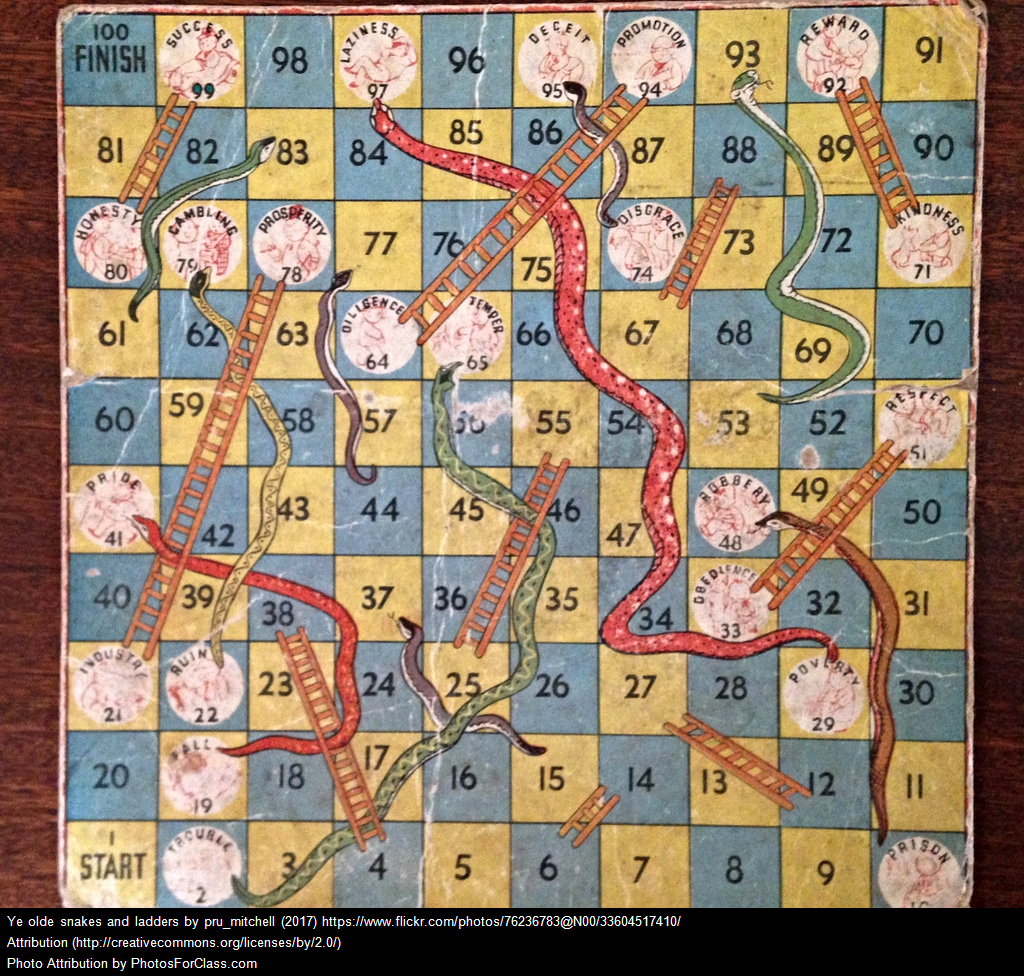


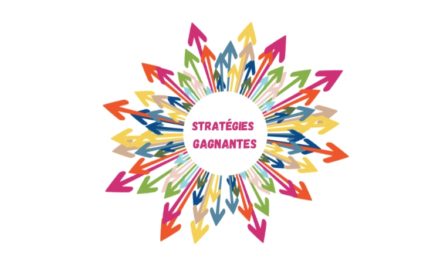
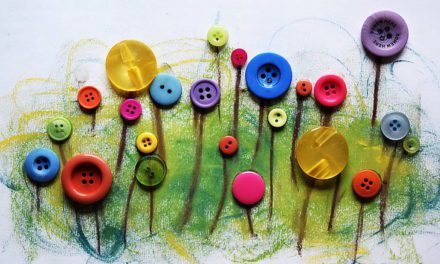
Great post. I grew up playing board games with my brothers and friends and still do so today. I just want to mention that we should not apologize or downplay the importance of competition. Healthy competition serves many purposes and creates situations where players can challenge themselves to do more, push themselves a little. Learning does not occur without effort, however, it is so much better when combined with fun. Thanks for sharing.